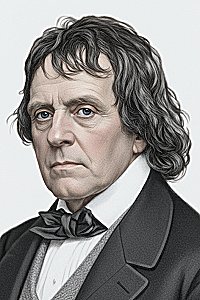Introduction
Born: January 10, 1783, Cádiz, Spain.
Died: October 3, 1864, Madrid, Spain.
Buried: Sacramental de San Justo, Madrid Spain

Born: January 10, 1783, Cádiz, Spain.
Died: October 3, 1864, Madrid, Spain.
Buried: Sacramental de San Justo, Madrid Spain

De Mora initially studied law, and was a professor at the University of Granada.
He later joined the army, but was taken prisoner, and lived in France 1809–14. It was there he met and married a highly educated French woman, Françoise Delauneux.
After the war, he returned to Cádiz, immersing himself in literature and translating Walter Scott’s Ivanhoe.
In early 1815 he moved to Madrid, intending to practice law, but the lure of literature was too strong.
He translated several works from French and English, and became a journalist for Crónica Literaria y Científica, which he founded in 1817 and lasted until 1820.
Its sequel, El Constitucional, in La Minerva Nacional and other publications, continued to explore literary and political issues in prose and verse.
He wrote for and helped direct numerous liberal newspapers in Madrid, earning the nickname of Luca fa presto for the speed with which he produced articles.
De Mora emigrated to London in 1824, settling with other liberals in the Somerstown district.
With the editor Ackermann, he founded No Me Olvides, a sort of almanac in prose and verse, six volumes of which were published 1824–29. The first four had poems with translations by Mora, and the last two by Paul Mendibil.
De Mora was the sole director and editor of Universal Museum of Arts and Sciences (1824–26) and the Literary and Political Mail of London, aimed primarily at Hispanic Americans.
De Mora went to Buenos Aires, Argentina, in late 1826, and in 1827 led the Crónica Política y Literaria y El Conciliador of his friend President Rivadavia.
De Mora was in Chile 1828–31, where he organized the Liceo de Chile, and founded El Mercurio Chileno (1828–29), a scientific and cultural journal, in collaboration with Spanish doctor Jose Passamán and Italian botanist Carlos Bertero.
He also helped draft Chile’s 1828 constitution.